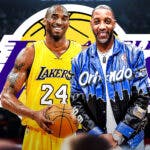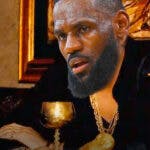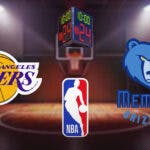The Los Angeles Lakers have signed Dwight Howard, marking his second stint with the Lakers since that disastrous one-year turn during the 2012-13 campaign where the Lakers imploded before our eyes. But obviously, a whole lot of things are different in 2019 as opposed to 2012.
Here are five differences between Howard's second go-around in Los Angeles and his first.
5. Role
When Howard first arrived with the Lakers in 2012, he was considered by many (if not most) to be a top-five player in the league at the time. He was a dominant force on both ends of the floor, and as a result, he was expected to play a pivotal role for LA.
This time around, that's not the case.
Age, injuries and a changing NBA landscape have taken just about all of the shine off Howard, to the point where he has largely been viewed as a team obliterator rather than an asset over the last several years.
For that reason, Howard is no longer considered a central piece and is more of role player who could work well in certain matchups.
The Lakers aren't bringing Howard in to average 25 points and 14 rebounds per game. They are adding him for some muscle, some help on the glass and as a rim-protector. Expecting him to play even 25 minutes a game is probably out of the question.
4. No Longer a Star
Again, seven years ago, Howard was widely regarded as one of the best players in the NBA and generally considered the league's No. 1 center. But now, in 2019, Howard is barely even a shell of the player he once was and probably wouldn't even make most top-100 lists.
Because of that, there is no longer the pressure of having to adjust to Howard or having to get him his touches, and at this point, Howard has to know this.
If Howard doesn't work out, the Lakers can simply cut ties with him, as his contract is completely non-guaranteed. There are really no strings attached here. It's not like 2012 where Los Angeles was adding a bona fide All-Star.
3. Mindset
Hearkening back to Howard having to understand that he is no longer an A-list (or even B-list) player, a change in mindset has almost surely occurred in Dwight's brain.
No, he has never been the most mature guy around, but even he has to know that he isn't that dude anymore. He's merely being looked at as a complementary piece (and only a potential one, at that) on a roster that includes LeBron James and Anthony Davis, not to mention terrific role players such as Danny Green and Kyle Kuzma.
Howard's willingness to accept a lesser role could make all the difference in him being an asset rather than a detriment, and at 33 years of age, you have to think (hope?) that Howard has had that revelation.
2. No Kobe Bryant
Look, we can rip Howard as much as we want for acting like petulant child at certain points of his career, and that criticism is 100 percent, but let's face it: He was not the only guy at fault for his forgetful (but unforgettable) season with the Lakers seven years ago.
There was a stubborn, declining superstar by the name of Kobe Bryant who was also in tow, and even the most diehard Lakers fan would have to acknowledge the fact that Bryant gave Howard a hard time and was at least somewhat culpable for that disappointing campaign.
That's not to say that Bryant didn't work his butt off to get Los Angeles in the playoffs before ultimately tearing his Achilles during the closing stretch of the regular season, but there is also no question that Bryant could have handled his relationship with Howard better.
1. The Game has Changed
There was a time when centers like Howard ruled the roost. Guys who could bang in the post, grab rebounds like nobody's business and block a couple of shots per game were the gold standard, and any bigs who shot threes were generally viewed as soft.
But now, the NBA landscape has been altered to the point where if you are a big man who doesn't shoot threes, you are usually viewed as a liability.
Of course, there are certain exceptions, such as Rudy Gobert and Clint Capela, but for the most part, you have to be able to at least make defenses respect your perimeter shot, and that has never been a part of Howard's game. As a result, Howard can no longer be an integral part of any team's offense and will merely have to accept a Capela type of role, running pick-and-rolls and cleaning up misses around the rim.
Surely, he comprehends the fact that centers like him are largely going extinct and that those who are still around are not regarded as significant offensive threats.
This goes back to Howard's change in mindset. There is no way that he is oblivious to any of this.




